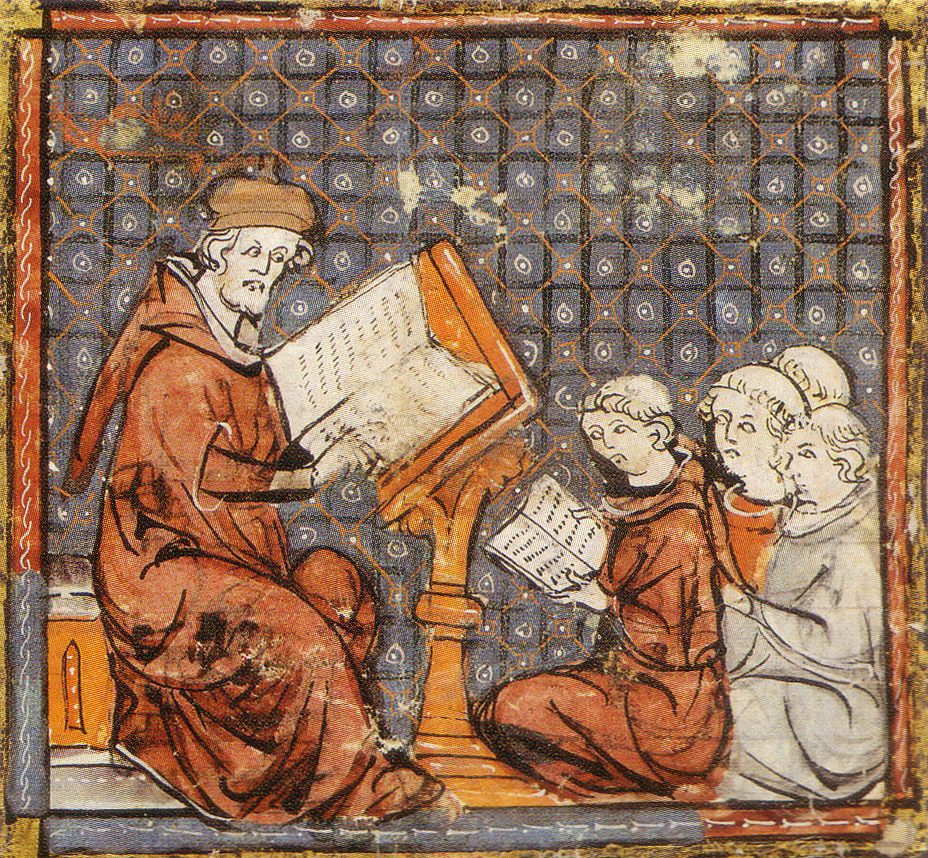
Teacher and students at a Paris university, fourteenth century. Wikimedia Commons.
• “The city is expensive and makes many demands; I have to rent lodgings, buy necessaries, and provide for many other things which I cannot now specify. Wherefore I respectfully beg your paternity that by the promptings of divine pity you may assist me, so that I may be able to complete what I have well begun.” Students in the thirteenth century often hit their parents up for spending money. (Medievalists.net)
• Has the cult of domesticity continued to shape the lives of women in the twenty-first century? (Pacific Standard)
• An examination of the nostalgia boom centered on New York City of the 1970s: “Would-be writers, singers, dancers could afford to live in Manhattan’s (East, if not, West) Village, before everyone marginal was further marginalized by being squeezed out to Bushwick or Hoboken. Face-to-face encounters are essential to a city’s vitality, even among people who aren’t sure of each other’s names, for the exchange of ideas and to generate a sense of electricity. In the ’70s, creative people of all sorts could meet without plans, could give each other tips or discuss burgeoning theories or markets or movements.” (New York Times Magazine)
• Is Thomas Pynchon secretly publishing new novels under a pseudonym? (Harper’s)
• “Historical and literary evidence suggests that, in the past, not only did men cry in public, but no one saw it as feminine or shameful. In fact, male weeping was regarded as normal in almost every part of the world for most of recorded history.” Masculine tears throughout the ages. (Aeon)
• The architects of the Soviet Union designed buildings that were both fantastical and utilitarian, futuristic and filled with allusions to history. Virtually none of them made it off the page. (Hyperallergic)
• “‘When a woman drinks it’s as if an animal were drinking, or a child,’ Marguerite Duras once wrote. ‘Alcoholism is scandalous in a woman, and a female alcoholic is rare, a serious matter. It’s a slur on the divine in our nature.’” Literary drunks are often venerated—how is it different for those that happen to be women? (New Republic)